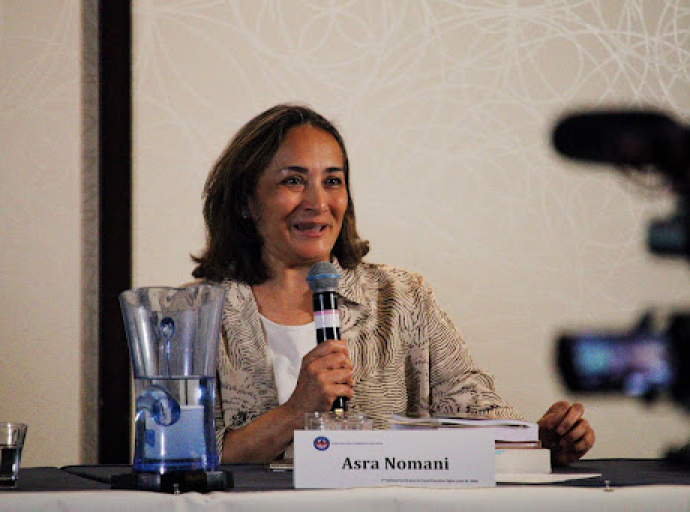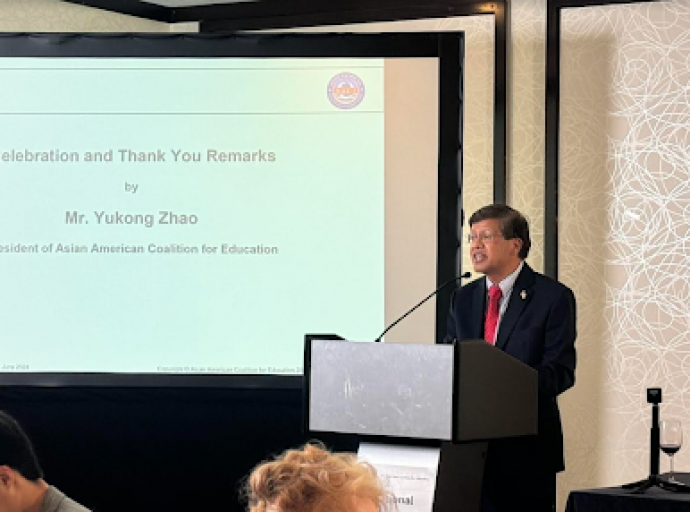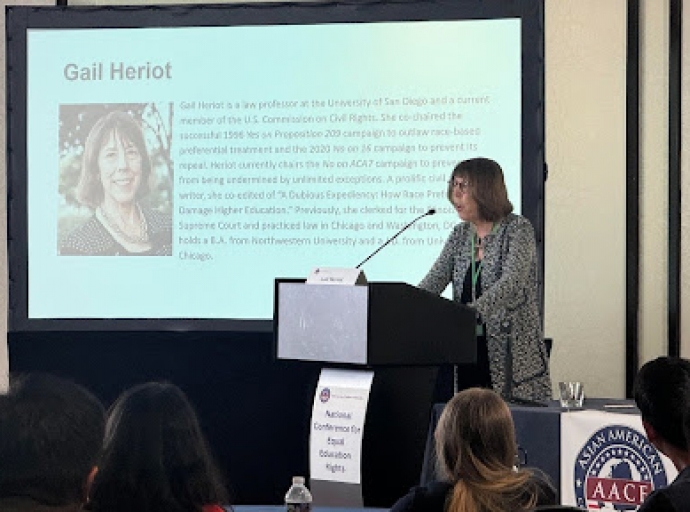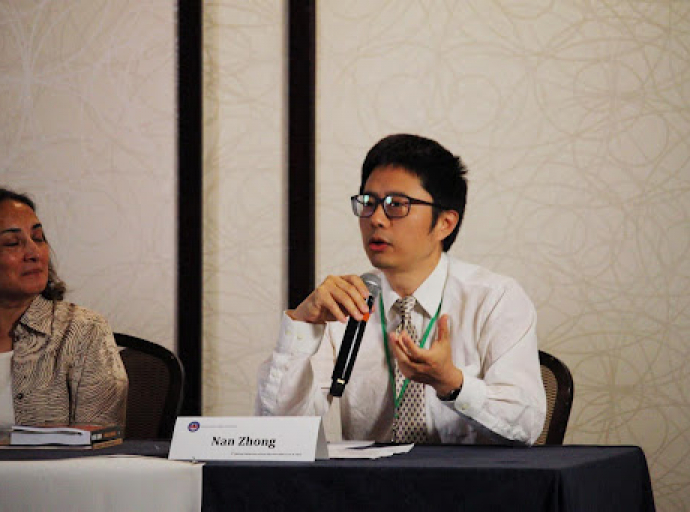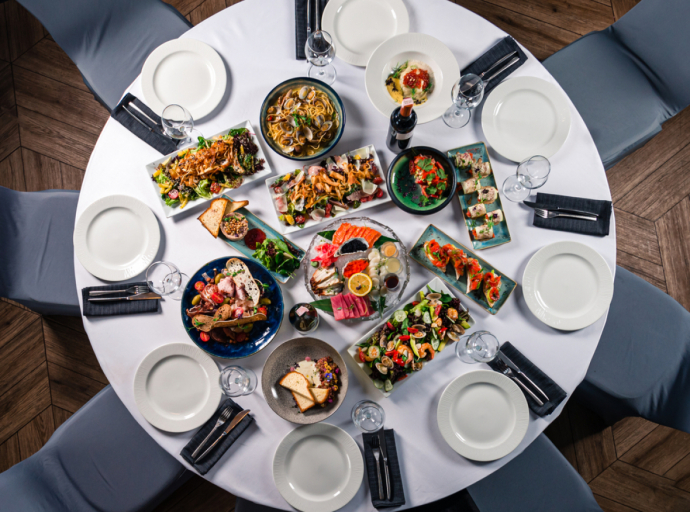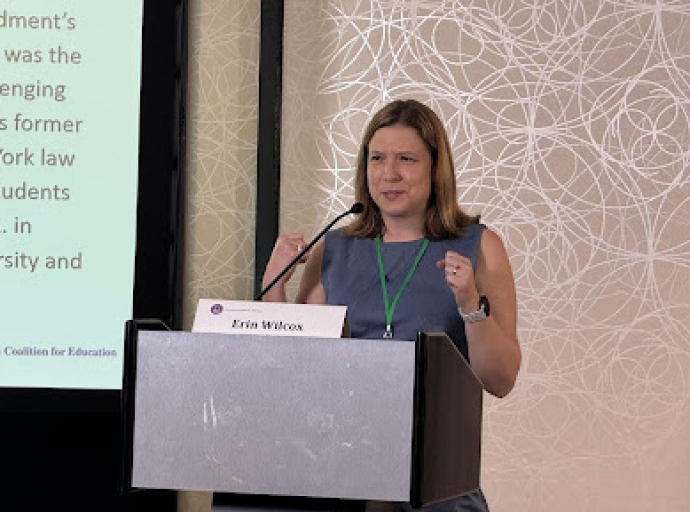[中文版本]
At this conference, I wasn’t able to get interviews with the people I prepared for, however, I did have a few talks with conference speakers that had experiences or perspectives that I thought were interesting. I had a brief exchange with Asra Nomani, who has had experience fighting for meritocracy at Thomas Jefferson High School in Virginia, which I felt was related to a personal situation of mine. I also had a brief exchange with Paul Lott, who I thought had a very interesting take on improving equality in K-12 education, that quality teachers weren't enough, and change needs to occur in the household.
In the “Asian Community Grassroots Movement in Defending Equal Education Rights and Meritocracy” at the conference panel, Nomani recounted her experience of defending meritocracy. The Thomas Jefferson High School for Science and Technology in Virginia is one of the nation's best high schools, ranked #14 nationally.
In 2020, the school changed its admissions policy, adding a “holistic review process” that considered the students’ eligibility for free school lunch, whether they attended a historically underrepresented middle school, etc. Although admissions don’t consider applicants’ name, race, ethnicity, or sex, the change in admission policy is believed by some parents to be against Asian American student enrollment. Nomani recounted her experience trying to fight this change as a parent, explaining how the students who were able to get in through this policy change often dropped out because it was too difficult. Nomani explained that this artificial boosting of diversity wasn’t helping either side.
I thought that this was interesting because it resembled what was happening at the middle school I attended. Takoma Park Middle School is a school with a magnet program that had a change in admission policy, similar to Thomas Jefferson. The school changed from a merit-based admission system to a lottery-based admission system that was more inclusive. This previous school year (2023-2024) was the first year in which all the students were admitted through this policy, and the effects were obvious.
Although diversity was boosted by this change, the performance of students has decreased significantly. A good indication of this is the Mathcounts math competition, wherein students from Takoma Park usually dominate the leaderboard. However, of the 2023-2024 Takoma students, not a single one placed in the top 16, making the Countdown Round, whereas previously nearly all the students from Takoma would enter the top 16. This is deeply unsettling to me and all the other Takoma alumni, but we weren’t so sure what to do about it. Hearing that other schools have had similar situations has motivated me to try to do something about it.
At the conference, one of the issues that was discussed was equality in K-12 education. The goal of equal K-12 education across the country is to make college admissions more equal for all, whilst keeping admissions based on merit. One way to promote equal K-12 education that was discussed was to bring quality teachers to schools in lower-income areas. The idea is that good teachers create good students.
However, Paul Lott rejected that claim, saying that the culture of the community mattered much more in creating good students. Lott is an education advocate, author, and founder of the National Society for the Advancement of Black Americans (NSABA). He is the inventor of the “Parent Method,” which helps parents teach effective learning skills to their children for independent study. Lott claims that to create good students, the most important aspect is not teacher quality, nor school facility quality, but rather the parents of the student, and their beliefs about education.
For example, if the parents of a student don’t believe in education and the education system, maybe because of their own experiences with the system in the past, then the student will almost certainly share that perspective on education. If the students don’t believe in the educational system, they aren’t willing to learn from it, and this results in poor performance.
On the other hand, families that greatly valued education had students who were much more willing to learn and were more successful. A study done by Lott showed that students and families with generational school excellence from Harvard, Yale, and Princeton, i.e. several generations of the family attending these top schools, had a consistent common factor that accounted for that generational excellence. That common factor was the culture of education, their habits, and so on, which was unconsciously passed from generation to generation. The study showed these inherited good habits were more important for success than other factors, such as IQ. Lott claims that this shows why schools cannot fix the quality of students in an area, rather it's up to the parents to instill the value of education into their children. Lott’s study showed that once the family’s culture had this focus on education, each generation would be more successful than the previous.
I thought this perspective on improving the quality of students in struggling areas was interesting, and makes quite a lot of sense. However, this also does make the issue much more difficult. Instead of just inserting good teachers, it becomes necessary that the entire culture of the community must change.
(Contributed by the CAPA-MC Junior Reporter Club)

